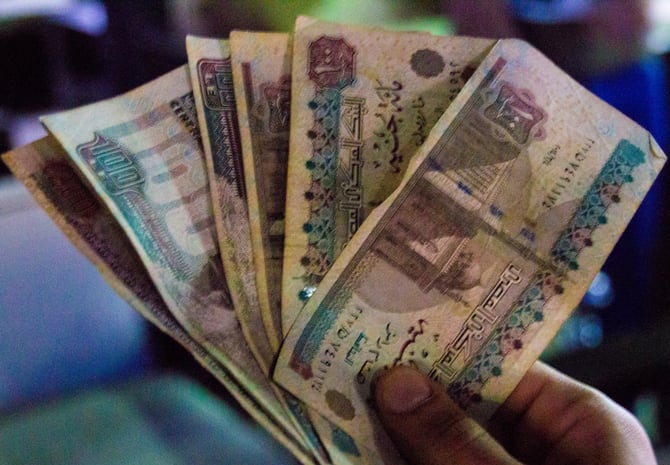Egyptian Pound Sheds Half Its Value Since March

Egypt, the most populous country in the Arab world, has had a brutal year. The Egyptian pound recently softened by more than 13% to a new low of 32 to the US dollar. Since March 2022, the pound has lost half of its value against the greenback as the Egyptian central bank rolled out a more flexible exchange rate under the terms of an IMF loan.
Over a 10-month period, the 50% devaluation against the dollar has driven up the price of imported food and other goods. Egypt’s economy has been one of the hardest hit by Russia’s invasion of Ukraine after jittery global investors yanked billions out of the North African country.
Food insecurity caused by the war has set wheat prices on a steep increase, badly affecting Egypt, one of the world’s biggest grain importers and dwindling the country’s foreign currency reserves. With other costs already spiraling from higher global energy prices, official inflation in Egypt hit 22% in December, with food prices soaring 38% year-on-year.
What does this mean for me?
In late 2022, the IMF approved a much-needed loan for Egypt on condition the country adopted a permanent shift to a flexible exchange rate regime and inflation-reducing monetary policies.
The loan program, worth $3 billion over 46 months, was but a small fraction of Cairo’s debt commitments that amounted to $42 billion in 2022-2023. According to ratings agency Moody’s, Egypt is one of five world economies most at risk of defaulting on its foreign debt.
More News
.webp)
US Dollar Faces Biggest 6-Month Drop in Half a Century
4 months ago
.webp)
Dollar Slips to Three-Year Low as Trump Eyes Early Fed Appointment
4 months ago
.webp)
AI-Powered Trading Bots Bring a New Kind of Threat
6 months ago
.WEBP)
Euro Value Surges as Markets React to Tariff Shock
7 months ago

Euro’s Slide: What’s Behind the Drop and What’s Next?
10 months ago

Sterling Gains Against Euro as Central Banks Move Apart
11 months ago

Euro Remains Steady Amid Tariff Threats
11 months ago

Euro Stays Under Pressure Amid Economic and Political Shifts
1 year ago